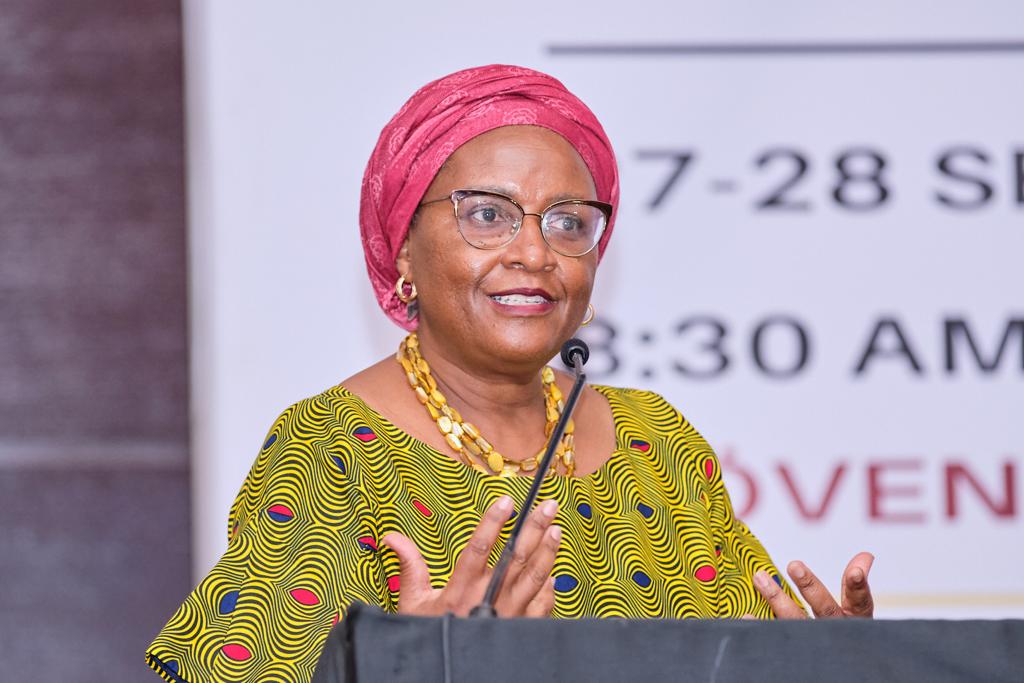By Morkporkpor Anku
Accra, Oct. 9, GNA – The Africa Continental Free Trade Area (AfCFTA) Secretariat has urged Small and Medium Enterprises (SMEs) to collaborate and embrace the tenets of the Agreement to overcome any trade barriers.
Mr. Silver Ojakol, Chief of Staff of the AfCFTA Secretariat, said the agreement was not for big corporations, indicating that “the agreement is designed and framed for the women and young men, who on a daily basis face challenges across the continent when crossing neighbouring borders to trade in goods and services.”
Mr. Ojakol made the call on behalf of the Secretary General, Wamkele Mene at the 2023 Regional Integration Issues Forum (RIIF) dubbed the SME Conference in Accra, Ghana.
RIIF is a sensitization mechanism and an interface platform for stakeholders involved in regional integration and continental trade initiatives aimed at increasing awareness of the AfCFTA and its benefits for SMEs, as well as to strengthen SMEs’ capacity to engage in intra-African trade.
The two-day SME conference was under the theme: “breaking business barriers for AfCFTA Acceleration.”
The conference was organized by the Centre for regional Integration Africa (CRIA), the African Capacity Building Foundation (ACBF), in collaboration with the Ghana Institute of Management and Public Administration (GIMPA), and the African Continental Free Trade Area (AfCFTA) Secretariat with the support from Afreximbank.
The conference brought together over 150 participants from across Africa, including government officials, business leaders, academia, and civil society representatives.
The participants discussed a wide range of issues related to AfCFTA implementation, including trade barriers, infrastructure, and access to finance.
“If African countries came together and achieved just one percentage increase in trade amongst itself, we would earn 70 billion dollars, which will be higher than the 58 billion dollars given by donors as development assistance,” he said.
Mr Ian Mashingaidze, the interim Director of programs at ACBF, said, “the Foundation’s Strategic Plan for 2023-2027 places a strong focus on ‘Trade as an Engine of Economic Development’ as one of the key impact areas
and provides targeted capacity building support to governments, policymakers, institutions, and individuals involved in the AfCFTA implementation process.”
Prof. Lehlohonolo Tlou, Executive Director at CRIA said the importance of capacity building and equipping SMEs with the requisite skills and knowledge to break intra-Africa trade barriers and produce what it needs.
She emphasized that 60 years after the establishment of the Organisation of Africa Unity and the African Union, intra-African trade was abysmally low at 16 per cent and “Africa still produces what it does not consume and consumes what it does not produce.”
“The 2023 RIIF conference was convened as part of measures to raise awareness of the benefits of the AfCFTA, build capacity for SMEs to access regional markets; and encourage SMEs to explore partnerships for establishing regional value chains,” she added.
Prof. Samuel Bonsu, Rector at GIMPA, reiterated the fact that Africa had the youngest population and the need for intra-Africa trade to transform resources into better value could not have come at a better time.

“Africa has 420 million people aged 15 to 25 representing 40 per cent of the total population, and 70 per cent of the African population is below 35,” he said.
He expressed the hope that GIMPA as an institution of higher learning was better positioned to work with CRIA, ACBF and other partners to foster trade on the African continent by empowering businesses and leaders to develop policies and initiatives that are relevant to support SME growth on the continent.
GNA